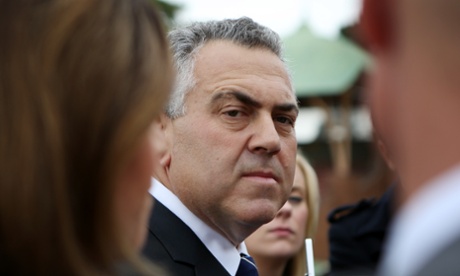'No one should die penniless and alone': the victims of Britain's harsh welfare sanctions | Society | The Guardian
'No one should die penniless and alone': the victims of Britain's harsh welfare sanctions
David
Clapson was found dead last year after his benefits were stopped on the
grounds that he wasn't taking the search for work seriously. He had an
empty stomach, and just £3.44 to his name. Now thousands of other
claimants are being left in similarly dire straits by tough new welfare
sanctions

David Clapson when he
was in the army … he was found dead last year, after his benefits were
stopped. Photograph: Linda Nylind for the Guardian
We know that David Clapson was actively searching for work when
he died because a pile of CVs he had just printed out was found a few
metres from his body. The last time he spoke to his sister, a few days
before he died, he told her he was waiting to hear back about an
application he had made to the supermarket chain Lidl.
But
officials at the Jobcentre believed he was not taking his search for
work seriously enough, and early last July, they sanctioned him –
cutting off his benefit payments entirely, as a punishment for his
failure to attend two appointments.
Clapson, 59, who had diabetes,
died in his flat in Stevenage on 20 July 2013, from diabetic
ketoacidosis (caused by an acute lack of insulin). When Gill Thompson,
his younger sister, discovered his body, she found his electricity had
been cut off (meaning that the fridge where he kept his insulin was no
longer working). There was very little left to eat in the flat – six tea
bags, an out-of-date tin of sardines and a can of tomato soup. His
pay-as-you-go mobile phone had just 5p credit left on it and he had only
£3.44 in his bank account. The autopsy notes reveal that his stomach
was empty.
The circumstances of Clapson's death have been
scrutinised by many of the groups campaigning for a reform of the
government's increasingly punitive (or rigorous, depending on your
perspective) sanctions system, by which the Department for Work and
Pensions (DWP) stops benefits
payments to claimants who have not met the agreed conditions every
job-seeker signs up to when they start to claim support. While sanctions
have long been a part of the benefits system, and have cross-party
support, new regulations introduced in October 2012 have meant that they
are being handed out with greater frequency and for longer stretches of
time. In 2013, 871,000 people were sanctioned, losing some or all of
their benefits payments for a minimum of four weeks, rising to three
years in exceptional cases. There are hardship payments for those who
are struggling, but only a minority are told about them, leaving many to
survive on zero income.
Details of Clapson's death emerged just days after the publication of an independent review of sanctions,
the Oakley report, commissioned by the DWP, which acknowledged that
while the system as a whole was "not fundamentally broken", it was
"clear that this is a system that can go wrong and, when that happens,
individuals and families can suffer unfairly". The report concluded that
improvements were needed, "particularly for more vulnerable
individuals". The government responded by agreeing to make all the
proposed improvements. After a period of growing unease about the
consequences of stricter sanctions, there appears now to be some
official recognition that aspects of the system need to change.
Gill
Thompson is uncomfortable about launching a public campaign, and
talking about the way her brother died makes her cry, but she is forcing
herself to speak about it because she wants the government to accept
that improvements need to be made to the way sanctions are handed out.
"I don't want revenge or compensation; I just want lessons to be
learned," she says.
She is at pains to describe her brother as
someone who had worked for 29 years, anxious to stress that he should
not be seen as "scrounger". He spent five years in the army, two of them
serving in Belfast, 16 years working for BT and another eight at other
companies before he stopped working to care for their mother who had
developed dementia. When she died three years ago, he began to look for a
new job and was put on the government's new Work Programme, designed to
help unemployed people find a job. He completed two periods of unpaid
work experience, for B&Q and for a discount store. He told his
sister he had enjoyed these sessions, and had hoped to be allowed to do
more. He also completed a forklift truck training course. Although he
struggled to use a computer, he had been trying to apply for jobs
online. Thompson believes he was taking the process very seriously.
But
at some point in May 2013, he missed two appointments with the Work
Programme office, and was sent a letter informing him that his benefits
would be stopped for a month; the last payment was made on 2 July,
according to his sister. Six days later he was down to that last £3.44
(which he was unable to withdraw since it was less than £5). He died a
fortnight later.
Thompson describes her brother as very quiet and
private; he was not someone who liked to ask for help. "I don't know
what happened. He wasn't one for creating a fuss. He didn't tell me he
had been sanctioned. He was very proud. If I'd known I would have gone
over with food," Thompson says. "I could have sorted it out for him."

Gill Thompson: 'I just want lessons to be learned. Photograph: Linda Nylind for the Guardian
A DWP spokesman says: "Our sympathies are with the family of Mr
Clapson. Decisions on sanctions aren't taken lightly – there is a chain
of processes we follow before a sanction comes into effect, including
taking every opportunity to contact the claimant several times. People
can also appeal if they disagree. Mr Clapson did not appeal or ask for a
reconsideration of the sanction or apply for a hardship payment."
The
DWP says Clapson was told during a phone call on 16 July that he could
fill out a form to request hardship funds. He was sent a letter (dated
15 July) explaining how to apply for them, but his sister found it
unopened in his flat. "He was very bad at opening letters. People in his
situation are frightened of these letters. They are never good news,"
she says. Had he opened it, he might have found the language confusing.
"We cannot pay you your Jobseekers' Allowance from 28 June 2013," the
letter reads. "This is because we recently told you that a decision
would be made about a doubt: on whether you failed to comply with the
requirements of the scheme to which you have been referred."
She
hopes now for a fuller investigation and wants to see reforms to the
system so that people are treated with a greater degree of empathy. An online petition calling for an inquiry into his death has gathered 43,000 signatures.
"I
don't think anyone should die like that in this country, alone, hungry
and penniless," she says. "They must know that sanctioning people with
diabetes is very dangerous. I am upset with the system; they are
treating everyone as statistics and numbers."
Several of the
issues she raises chime with concerns highlighted in the Oakley report,
which noted that many people found the letters they received "complex
and difficult to understand" and "overly long and legalistic in their
tone and content" and lacked "personalised explanations of the reason
for sanction referrals". The correspondence was "particularly difficult
for the most vulnerable claimants to understand". Another problem
frequently highlighted was "that letters could be left unopened or
unread by claimants".
For over a year, charities and welfare
advice organisations have been warning the government over the
increased use of sanctions. The food bank charity the Trussell Trust,
which handed out over 900,000 three-day food parcels in 2013/14, said
83% of its food banks reported that sanctioning is causing rising
numbers to turn to them. Citizens Advice has seen a 60% increase in the
number of problems related to Jobseekers' Allowance sanctions since the
minimum sanction period was increased from one week to four weeks in
October 2012.
There was relief from some charities that the
government-commissioned review recognised some of these issues. Leslie
Morphy, chief executive of the homelessness charity Crisis, said:
"Sanctions are cruel and can leave people utterly destitute – without
money even for food and at severe risk of homelessness." Charities also
question whether sanctions are achieving the stated aim, which is to
encourage people back to work. The Oakley report also pointed out that
so many people are having sanctions reviewed and overturned when they
appeal against them that this "results in a significant cost to the
state". Citizens Advice has noted the high success rate for those who
appeal against sanctions, which chief executive Gillian Guy said:
"reveals a culture of 'sanction first and ask questions later'".
The
charity warns that the longer minimum sanction period is
counterproductive because "claimants are distracted from job-hunting as
they focus on putting food on the table and keeping a roof over their
head".
While Clapson's case has attracted front-page headlines,
thousands of others have contacted advice centres, unhappy about the way
their benefits have been stopped and overwhelmed by the challenge of
looking for work at a time when they have no money for food, bus fares,
phone calls and electricity.
Michael, 54, (who asked for his real
name not to be published) was sanctioned for four months after failing
to undertake a compulsory week's work experience at a local charity
shop. He points out that it wasn't his fault he didn't do the work
experience, because he was told by the charity shop that they didn't
want him to work there.
"I was five minutes early, I was polite. I
knew that if I didn't do the work, I would be sanctioned. I knew it was
important. But they decided they didn't want me; I've no idea why that
was. Two or three days later, when I tried to withdraw my Jobseekers'
Allowance, there was no money in my account. I went to the cashpoint,
put my card in and bingo! Nothing," he says.
"I went to the Jobcentre and was told that my benefits had been sanctioned for four months. It was a huge shock."
He
didn't realise that he could appeal or that he was entitled to some
hardship payments (and the Oakley report said only 23% reported being
told that they may qualify for emergency hardship payments if they had
their out-of-work benefits stopped.)

Jobcentre officials have the power to cut off benefit payments. Photograph: Alamy
He was sanctioned early last September, and it was six weeks before
(with the help of Citizens Advice) he began to get money again. In the
meantime, he was left with no money to buy food, and no money to pay for
his electricity. It was very difficult to rectify the problem because
he had no money to pay for phone calls, and no money for the £4.50
return bus fare from his village to Witney, where the Jobcentre is
based. Instead, he says he walked six miles there and six miles back (a
journey that took two-and-a-half hours each way) every week until his
payments were reinstated.
He had no savings, no family to support
him and few friends in the area. The little food he had in his cupboards
was used up quickly and his electricity supply (on a card payment) ran
out almost immediately. When, several weeks later, he found that there
was a food bank he could get help from, about half of the food he was
given was no good to him because it needed to be cooked. Occasionally he
went into the corridor of his housing association home, at a time he
was sure no one else would see him, and plugged his kettle into the
communal socket to boil water for a cup of tea.
"It was bleak. You
just give up," he says. He denies that sanctions can prove a positive
motivator, encouraging people to step up their search for work. On the
contrary, it hampered his ability to find a job. "It kills you. I
haven't got a computer. I was limited to looking in shop windows for
work."
He makes light of feeling hungry. "You deny it, I suppose.
You go without. I went down to basics – a bag of crisps a day. You think
it's only people abroad who live on scraps, but that's what you do."
He has now found part-time work as a cook in a care home.
Terry
Eaton, 58, worked most of his life as a builder, until he fell off a
ladder and broke his ankles. He spent some time on sickness benefit, but
more recently he was reassessed and found fit for work. Initially he
was happy at the prospect of being sent on a programme to help him find
work, but he struggled with the requirement to search for jobs on a
computer ("I've never owned a computer; we didn't have computer lessons
at school"), and to prove that he had applied for a fixed number of
jobs a week. When he visits building sites, he has the impression he is
rejected because of his age. He has been sanctioned several times this
year.
"They don't tell you that you've been sanctioned. You go to
the post office and find out that there is no money. Then you think
there must have been some computer error, so you get on the phone, but
you can't get through to talk to local people. You haven't got a clue
who you're talking to. The calls aren't free, so after a while you can't
afford to make any more."
If you go to a pay phone, you need to
put 80p in just to get through to officials, he says; given that you
are often left on hold, you usually need about £4 in your pocket to fund
the call.
He was sanctioned a second time, when he was already
sanctioned, because he didn't have the £5.50 return bus fare he needed
to attend an appointment. He is the youngest of eight brothers and
sisters, who have helped him. His four sisters have brought him meals
and helped with electricity payments. "I am very lucky. I don't know how
other people manage."
He appealed successfully, although he
hasn't received backdated payments and is no longer asking for them. "I
can't afford to keep chasing them. You call them and they just say:
'That's not our department.'"
Rita, 30, (also not her real name)
was made redundant from her job at Wallis clothes shop two years ago.
She has repeatedly been sanctioned, she believes in error, and most of
these sanctions have subsequently been overturned, although not until
after she has been left without money for long stretches of time. One
time she was sanctioned because she was 10 minutes late for an
appointment; another time she missed an appointment because she was
doing work experience elsewhere (and had received permission from a
Jobcentre official). "It was difficult to tell my friends and family. It
is embarrassing enough to be on benefits but to be on benefits and
struggling is not something that you just blurt out. Coming out from
university, I didn't think this would happen. I didn't know how to say
to people that I couldn't afford to eat.
"There was no
electricity, so I had to go to sit in the library. I couldn't make any
calls, so I hoped my friends would call me. There were times when I just
sat at the bus stop wondering: 'What I am I going to do?'" In the
evenings, because there no electricity, she would put on layers of
clothes and lie on her bed in the dark and cold.
"I couldn't
travel and I couldn't make any calls because I couldn't afford it. I
couldn't even afford to get the bus to come and sign on, but I knew that
if I didn't come in I would be suspended again."
She got into debt, and is now fighting an eviction process because she owes over a thousand pounds in rent.
Some Jobcentre staff are uneasy at the new rules surrounding sanctioning. A Public and Commercial Services Union (PCS) survey published in May
showed that 70% of surveyed PCS members who worked for the DWP did not
believe that sanctioning has a positive impact on helping a claimant
find work, while 76% had seen an increase in foodbank referrals.
One group of former DWP employees has set up a free online advice service, jobseekersanctionadvice.com.
The founder, a 54-year-old grandmother who left the DWP in 2011 and who
asked to remain anonymous, says she became uncomfortable with having to
implement policies that she believed were designed to punish people
for making small errors. Last Monday morning the site had 200 emails,
most of them requests for assistance, but six of them offers to help
staff the site, two of them from former DWP employees.

Food banks have seen a surge in requests for help. Photograph: Murdo MacLeod
The founder says she was an award-winning employee while she worked
for the Jobcentre. "I know sanctions don't work. There are other ways to
motivate people." She hopes that the system will be reformed. "When
people get sanctioned, they don't get told. They don't get a chance to
put their side of events. It is the vulnerable who are hit. There are
easy targets; they don't fight back and they usually don't understand
the rules."
Few question the need for sanctions, and the idea that
the government needs some kind of stick to ensure that people take
their responsibility to look for work seriously is broadly supported.
The concerns rest on the sensitivity with which they are imposed.
The
DWP spokesman says: "The new JSA sanctions regime, which was introduced
in October 2012, encourages people to engage with the support being
offered by Jobcentres by making it clearer to claimants what they are
expected to do in return for their benefits – and that they risk losing
them if they don't stick to the rules." But in response to the Oakley
review, the government has promised to look at the way it communicates
with claimants and to "clarify guidance" about the hardship payment
process.
Clapson's sister hopes that her brother's death may
encourage greater sensitivity towards claimants who are
struggling."There is no humanity and they are getting the little people.
Why sanction vulnerable and needy people"?



















